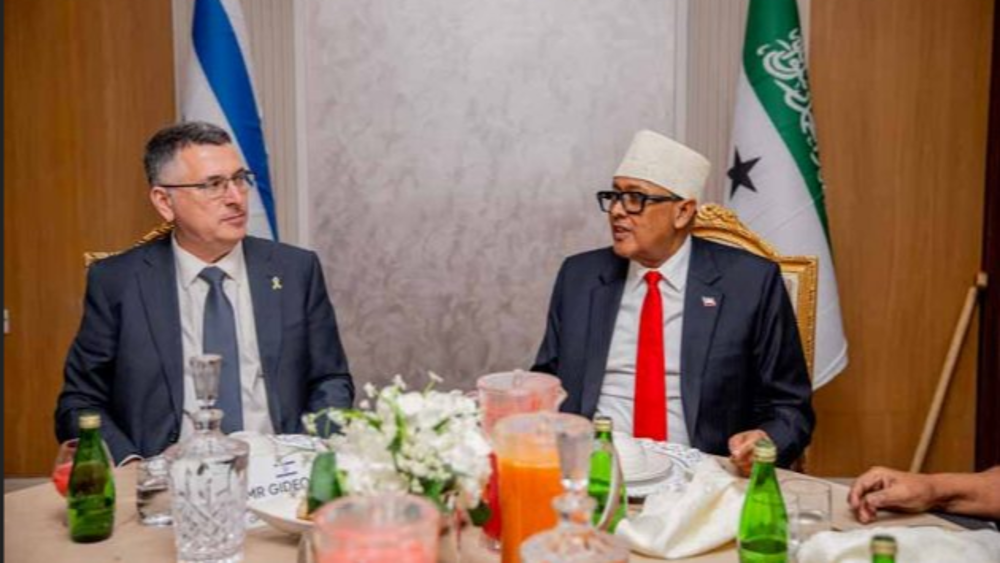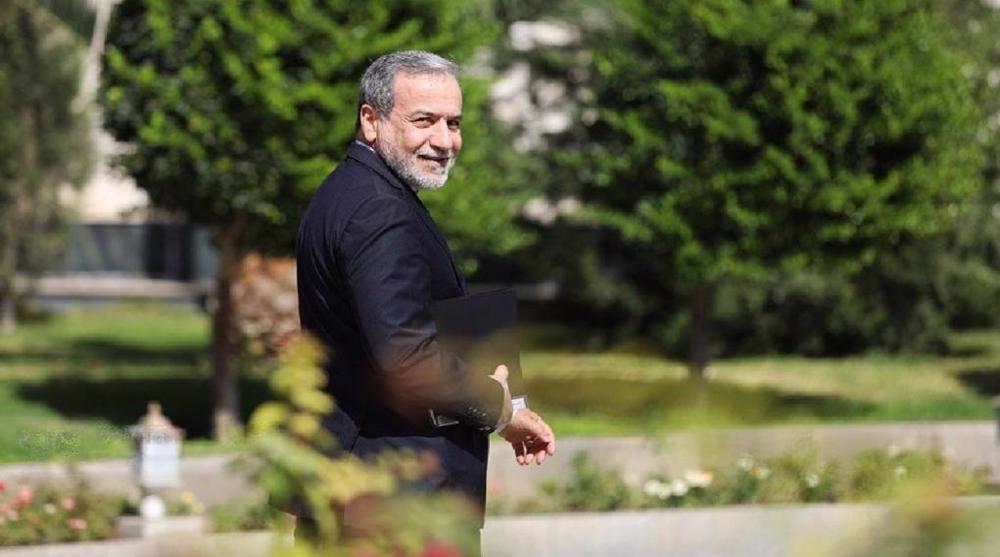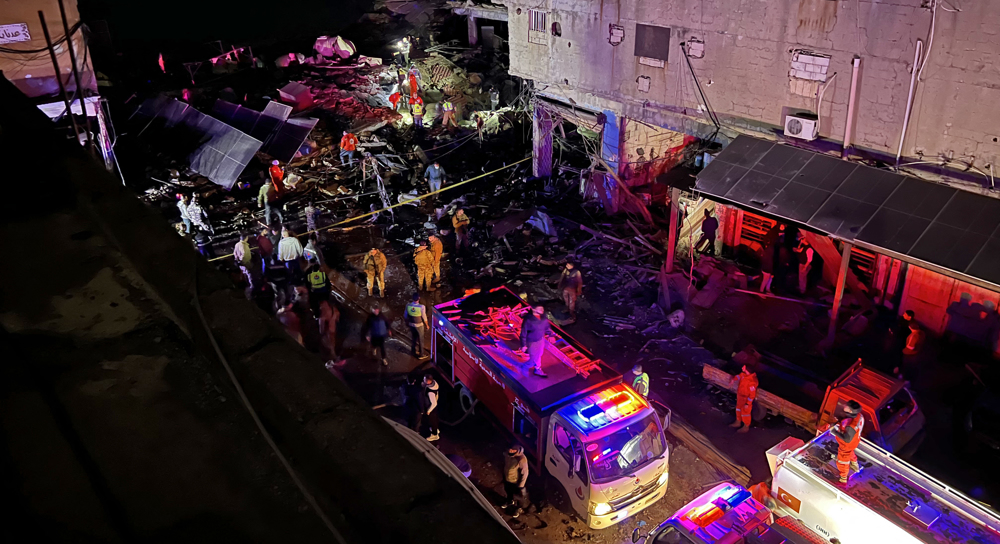Syrian people cannot be dictated to: Iran FM
Iranian Foreign Minister Mohammad Javad Zarif says the political process to resolve the crisis in Syria is exclusively Syrian, stressing that no one can dictate terms to the Arab nation, PressTV reports.
Speaking to the PressTV correspondent in the Austrian capital of Vienna on Tuesday, Zarif said all participants at the International Syria Support Group (ISSG) must realize that the Syrians have the final say on the diplomatic process in the crisis-hit country.
"It’s a Syrian-owned, Syrian-led process. People here are supposed to help…not to dictate to the Syrian people and this is what we have been pointing out time and again,” the Iranian foreign minister said.
He added that the ISSG meeting in Vienna ended without "any groundbreaking" news in the final statement of the talks.
He, however, emphasized that what is important is that there is “general consensus that we need to expand the cessation of hostilities to include all of Syria.”
Zarif stressed the importance of addressing the issue of the “mixture of various groups and al-Nusra” terrorists in Syria.
He said they are “collaborating with each other and cooperating and …receiving a lot of assistance and weaponry from the outside,” and added that this issue was included in the final communiqué of the ISSG.
The Iranian minister added that participants at the ISSG meeting agreed to continue to work and to support the political process and said, “Obviously, countries around that table have divergent views and disagreements on a whole range of issues and I believe it’s important to understand that.”
Despite a cessation of hostilities in some areas in Syria, there were loopholes in that agreement from the beginning, he said.
“The most important loopholes were the fact that al Nusra, which is a major terrorist organization operating in many areas that are now undergoing serious humanitarian catastrophe, continues to be collaborating with various groups that have been supported by governments in the region and outside the region and there is a need to once and for all deal with that," Zarif pointed out.
A partial Russia-US mediated ceasefire, which began in Syria on February 27, has helped reduce violence, but fierce fighting has raged on over the past few weeks in some parts of Syria, especially the northwestern city of Aleppo. The terrorist groups of Daesh and Nusra Front were excluded from the truce.
In its final statement on Tuesday, the ISSG called on the international community to prevent any material or financial support from reaching Daesh and Nusra Front and dissuade any party to the truce from cooperating with the terrorists.

“The ISSG supports efforts by the co-chairs of the Ceasefire Task Force … to consider ways to deal decisively with the threat posed by Daesh and the Nusra Front to Syria and international security,” the statement read.
The latest round of UN-brokered indirect talks, which began in Geneva, Switzerland, on April 13, were brought to a halt after the main foreign-backed opposition group walked out of the discussions and declared a "new war" against the Syrian government.
Iran FM’s meeting in Vienna
On the sidelines of the ISSG meeting in Vienna, Zarif held separate talks on Tuesday with US Secretary of State John Kerry (seen below), British Foreign Secretary Philip Hammond and Omani Foreign Minister Yussef bin Alawi.
Zarif and Kerry discussed ways to remove obstacles in the way of full implementation of the last year’s nuclear agreement reached between Iran and the P5+1 group of countries, dubbed the Joint Comprehensive Plan of Action (JCPOA).

With the implementation of the JCPOA on January 16, all nuclear-related sanctions imposed on Tehran by the European Union, the Security Council and the US were lifted. Iran has, in return, put some limitations on its nuclear activities.
Even though a series of economic sanctions were lifted against Iran in line with the JCPOA, the US still maintains a prohibition on Iran to access the American financial system or to directly conduct transactions in US dollars, fueling confusion and practical impediments given that international transactions routinely cross through the US banking system.
Also, the Iranian foreign minister and US British secretary exchanged views on ways to implement the JCPOA more effectively, particularly in banking sector.
Zarif and his Omani counterpart discussed the latest developments in the Middle East and avenues for improving Tehran-Muscat relations.
VIDEO | Transatlantic tensions: Greenland
VIDEO | Yemen’s Saudi-backed government expands control amid coalition strikes on separatists
Trump’s immigration crackdown turns deadly; president says killer acted in ‘self-defense’
Iran expects slight increase in domestic wheat purchases
France and allies weigh response to possible US invasion of Greenland
Israel approves over 3,400 settler units in occupied East al-Quds
VIDEO | South Africans demand release of UK Palestine Action activists
Israel kills one, injures another in new airstrike on southern Lebanon









 This makes it easy to access the Press TV website
This makes it easy to access the Press TV website